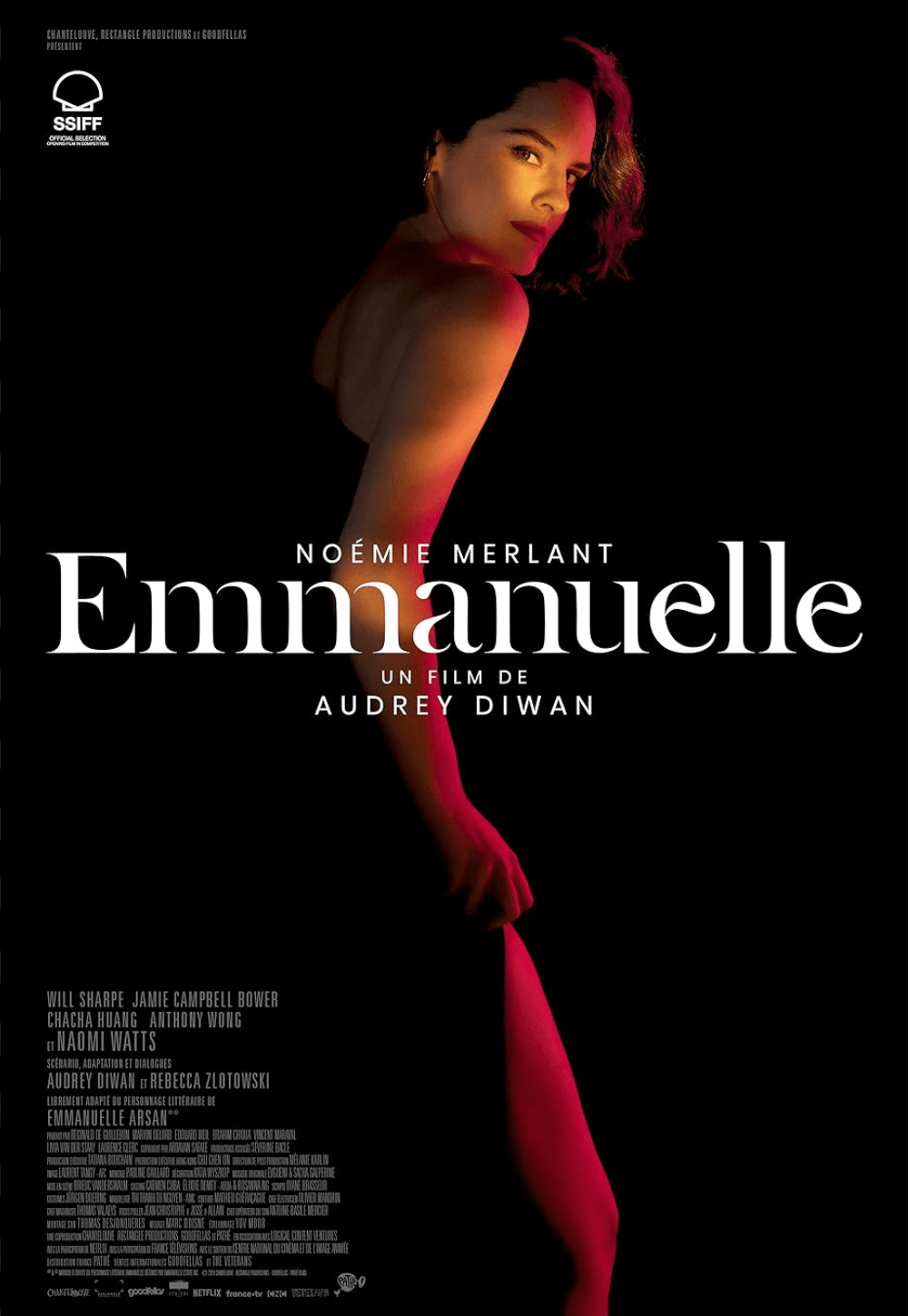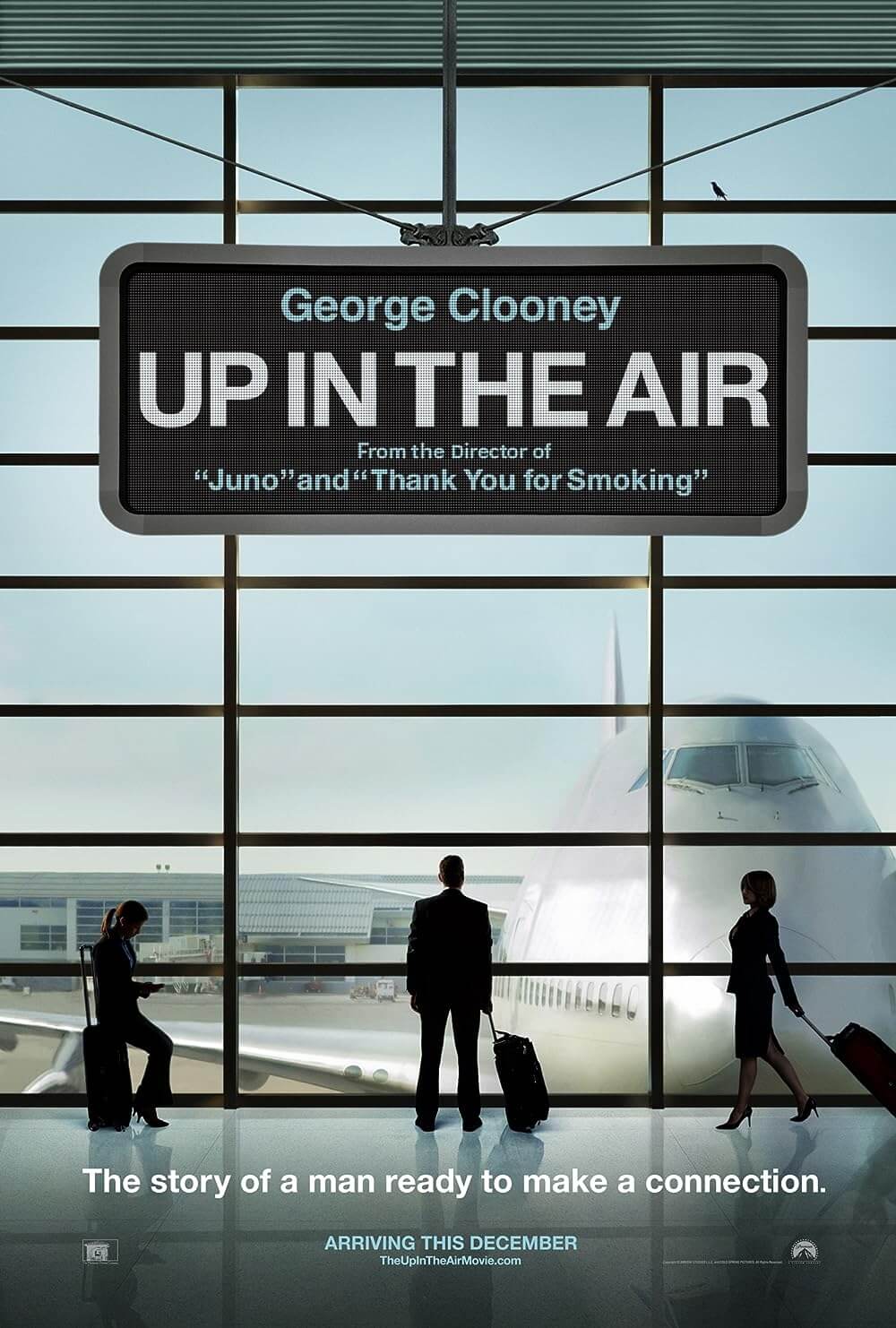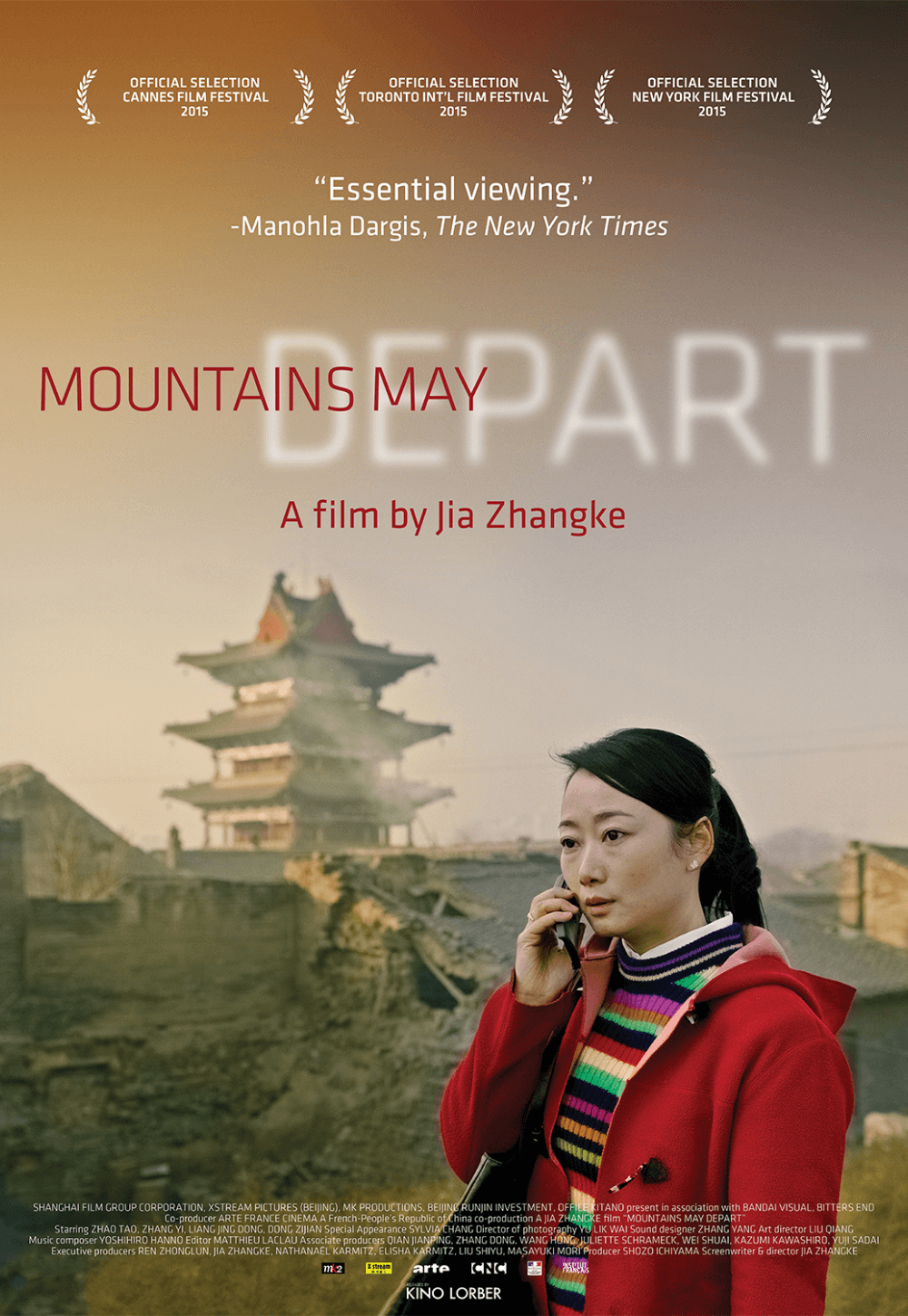Reader's Choice
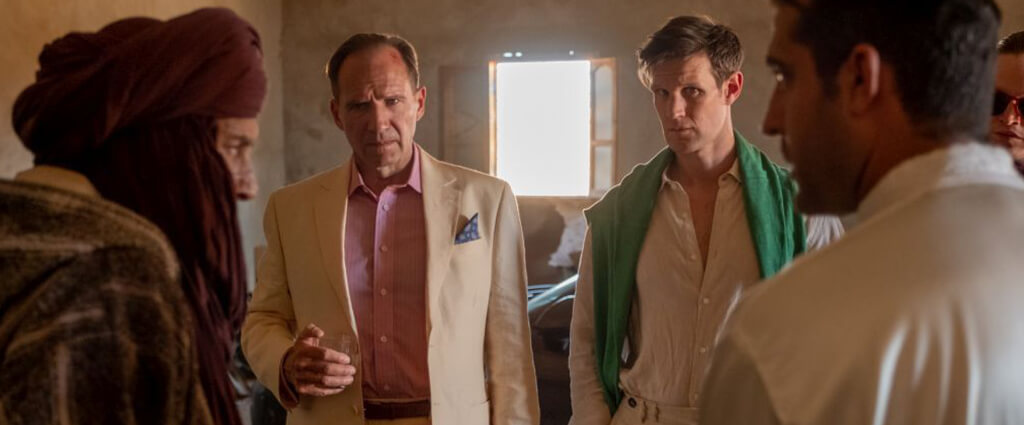
The Forgiven
By Brian Eggert |
John Michael McDonagh’s The Forgiven is about “useless people.” They have a lot of money, yet they’re bored. So they travel to exotic destinations to mock local customs and assemble with other people who look like them—white—for extravagant parties. The festivities could last for days, but somehow, they’d still be discontented. David and Jo Henninger are such people. Played by Ralph Fiennes and Jessica Chastain, both excellent, the Henningers arrive in Morocco by boat in the film’s first scene. David observes with an air of dispassion, “l’Afrique.” Perpetually unimpressed, David is a “functioning” alcoholic who justifies driving drunk because Moroccan roads appear empty, and Jo isn’t the type to stop him. Just before arriving at the party in the black of night, after several hours of driving, David strikes a boy selling fossils on the roadside. The death is mainly an inconvenience for the ultra-rich and privileged partiers, all of whom can buy themselves out of any trouble. So why, when the boy’s father arrives on the scene the next day and demands that David return to their village, does he go along? Although The Forgiven trains its sights on white privilege in another brutalist and meditative feature from McDonagh, the film weighs whether one can make amends by simply recognizing their downfalls or whether one must endure an eye-for-an-eye atonement for true absolution.
Based on the 2011 novel by Lawrence Osborne, the material is ideally suited for the Irish filmmaker, who explored similar themes in his best film, Calvary (2014)—he’s also well known for The Guard (2011) but less so for his underrated War on Everyone (2016). McDonagh, whose younger brother Martin you may have heard of, deploys corrosive and intentionally prodding dialogue, existential crises, and critical nihilism amid moments of disarming levity. In one scene, an Arab servant reflects, “A woman without discretion is like a gold ring on a pig’s snout.” Another responds, “You should have a Twitter account.” This brand of acidic humor flows through the film, yet applying this to a swath of insufferable rich people doesn’t exactly make for the most pleasant viewing experience. But somewhere between the sharp performances by the entire cast, the steady elevation of suspense, and the ponderous questions raised about David, The Forgiven manages to be more tolerable than one might expect, given the subject matter.
After all, McDonagh goes out of his way to make his characters unlikeable. Or perhaps a better way of putting it: he challenges the audience to find the humanity in these vapid personalities. The worst are Richard and Dally, played by Matt Smith and Caleb Landry Jones—a British snob and an unhinged American living together in a so-called castle built by hired help, dubbed their “little Moroccan friends.” They’re full of crass sarcasm and superiority, more worried about their weekend party going as planned than David’s accident. David sees his hosts and everyone in attendance, including himself, as part of a contingent of Europeans who, historically, have traveled to Morocco to “bugger little Arab boys.” David seems hypercritical of his surroundings, fully aware that he’s contributing to something morally reprehensible, and he drowns himself in alcohol to avoid thinking about it. A strain of poetic justice works through The Forgiven, specifically focused on David, where those who use their money and power to exploit the locals get what they deserve. Although David’s offense and initial attempt to cover up his crime do not bode well for his redemption, McDonagh offers hints that he has the capacity to recognize his crimes—despite his seemingly detached exterior.
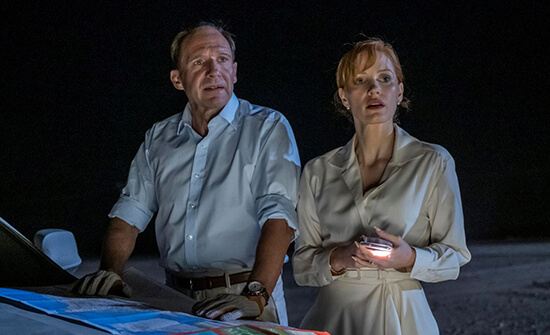 When David agrees to a days-long trip with the dead boy’s father, Abdellah (Ismael Kanater), and his driver, Anouar (Saïd Taghmaoui), there’s a sly implication that blackmail—or worse—may be in store. Richard and Dally’s servants think David may not return, while David appears inconvenienced by the whole affair (he doesn’t even put down his drink when he first meets Abdellah). Still, no one seems concerned enough to do anything about the situation; there’s partying to be had, after all. Even Jo is too busy realizing she wants to end her marriage, thanks to a charming young financial analyst (Christopher Abbott), to be worried when David leaves with strangers. If their behaviors weren’t enough, McDonagh offers several barbed images that illustrate his disgust with these characters, such as the party’s fireworks lighting up the sky at an inappropriate moment—when Abdellah loads his son’s body into his truck. But the film’s best scenes involve the truck ride to the boy’s village, where Abdellah remains silent, but Anouar translates and befriends David in a series of human conversations.
When David agrees to a days-long trip with the dead boy’s father, Abdellah (Ismael Kanater), and his driver, Anouar (Saïd Taghmaoui), there’s a sly implication that blackmail—or worse—may be in store. Richard and Dally’s servants think David may not return, while David appears inconvenienced by the whole affair (he doesn’t even put down his drink when he first meets Abdellah). Still, no one seems concerned enough to do anything about the situation; there’s partying to be had, after all. Even Jo is too busy realizing she wants to end her marriage, thanks to a charming young financial analyst (Christopher Abbott), to be worried when David leaves with strangers. If their behaviors weren’t enough, McDonagh offers several barbed images that illustrate his disgust with these characters, such as the party’s fireworks lighting up the sky at an inappropriate moment—when Abdellah loads his son’s body into his truck. But the film’s best scenes involve the truck ride to the boy’s village, where Abdellah remains silent, but Anouar translates and befriends David in a series of human conversations.
McDonagh’s style here is less pulpy than in his previous work. The Forgiven commits to its source material, which is not a criticism. The characters prove refreshingly complex, abstruse even, and far from the audience-friendly constructions of most mainstream fare. Although David is a bastard and terrifically played by Fiennes, Joy and Richard each tell stories about him to the others—about David’s days as a rebellious, liberal student who terrorized his instructors in creative ways because he disagreed with their ideologies. What happened to that boy? The answer is hidden in one of the many introspective conversations when Anouar tells David, “The world does not promise anything to anyone, and no man ever lived the way he wished.” Taghmaoui is also superb but certain to be overlooked. After his breakthrough in 1995’s La Haine, the actor has been cast as various Middle Easterns and terrorist stereotypes in Hollywood productions, but only the rare filmmaker such as McDonagh, Anton Corbijn (in Linear), or David O. Russell (in Three Kings, I Heart Huckabees, and American Hustle) has given him a chance to show his skill.
The Forgiven is a wise and cynical film that confronts how true atonement is achieved on an individual level, not according to some social and class definition. It also recognizes how quickly someone like David falls out of his elitist behavior after he steps outside the social bubble that harshly inscribes itself on him, and he faces his mortality. McDonagh’s stinging dialogue, aching though it may be at times, explores the film’s themes in subtle, poignant exchanges. Take a quiet moment where David and Anouar stop in a small village and enjoy a croissant. The previous day, Richard and Dally’s cook tossed out the fresh, uneaten pastries, and evidently, they found their way to the village. Day-old croissants taste just as good, and David can’t tell the difference anymore. Along with Larry Smith’s beautiful lensing, which uses the vast emptiness of the desert to reflect his characters, McDonagh’s cast of talented actors brings these often terrible people to life for a film that, like David, is not without redemption.
(Note: This review was originally suggested on and posted to Patreon on August 21, 2022.)
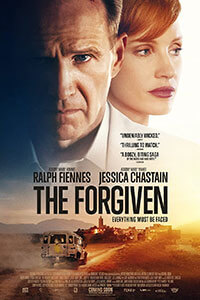
Thank You for Supporting Independent Film Criticism
If the work on DFR has added something meaningful to your love of movies, please consider supporting it.
Here are a few ways to show your support: make a one-time donation, join DFR’s Patreon for access to exclusive writing, or show your support in other ways.
Your contribution helps keep this site running independently. However you choose to support the site, please know that it’s appreciated.
Thank you for reading, and for making this work possible.
Brian Eggert | Critic, Founder
Deep Focus Review


